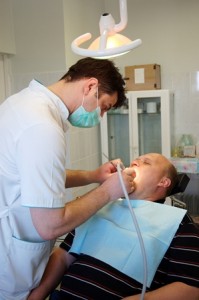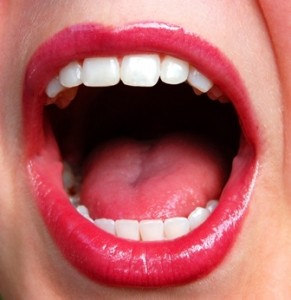
Herpes Simplex (HSV – 1)
You’ve navigated your way around tempting Thanksgiving treats and have read articles about flu prevention techniques, but have you stopped to think about the dangers of exchanging saliva?
The Herpes simplex virus, or HSV-1, is the particular virus strand that is the cause of cold sores (also known as fever blisters). It’s estimated that over 50% of the nation has been infected with the virus. Some carriers of HSV-1 have never had a cold sore and are unaware that they’re carriers, but are still contagious. This means that although they may never be plagued by a cold sore, they still retain the ability to transmit the virus to others, where it can cause unsightly and painful sores on lips and in the mouth. These sores can last up to two weeks, be pus-filled, and eventually crust over before they disappear. The virus will always remain latent in the body, waiting to be triggered by uncontrollable outside forces such as stress or exhaustion.
But how can I get it?
Cold sores are usually spread through saliva and enter through a minuscule break in the skin. This can be achieved not only by hanging out under the mistletoe at a party, but by sharing food as well. Parents can spread the Herpes Simplex virus to their kids by drinking from the same cup of hot chocolate or sharing eating utensils.
A cold sore just appeared. What do I do now?
Fortunately, there are many over-the-counter and prescription treatments available to minimize the appearance of cold sores and their associated discomfort. Talk to your dentist or doctor when you have an initial cold sore outbreak or even if the current medication you’re taking isn’t working as well as desired.
There’s a bright side?
The good thing is that you no longer have to feel guilty about keeping your favorite holiday treat to yourself. Feel free to eat, drink, and be merry! Just remember to be safe now that you’re informed about the dangers of mistletoe.
You’ve navigated your way around tempting treats and have read articles about flu prevention, but have you stopped to think about the dangers of exchanging saliva?
Herpes simplex
The Herpes simplex virus, or HSV-1, is the particular virus strand that causes cold sores (also known as fever blisters). It’s estimated that over 50% of the nation has been infected with the virus. Some carriers of HSV-1 have never had a cold sore and are unaware that they’re carriers, but are still contagious. This means that although they may never be plagued by a cold sore, they still retain the ability to transmit the virus to others, where it can cause unsightly and painful sores on lips and in the mouth. These sores can last up to two weeks, be pus-filled, and eventually crust over before they disappear. The virus will always remain latent in the body, waiting to be triggered by uncontrollable outside forces such as stress, cold weather, or exhaustion.
But how can I get it?
Cold sores are usually spread through saliva and enter through a minuscule break in the skin. This can be achieved not only by hanging out under the mistletoe at a party, but by sharing food as well. Parents can spread the Herpes simplex virus to their kids by drinking from the same cup of hot chocolate or sharing eating utensils.
A cold sore just appeared. What do I do now?
Fortunately, there are many over-the-counter and prescription treatments available to minimize the appearance of cold sores and their associated discomfort. Talk to your dentist or doctor when you have an initial cold sore outbreak or even if the current medication you’re taking isn’t working as well as desired.
Is there a bright side?
The good thing is that you no longer have to feel guilty about keeping your favorite holiday treat to yourself. Feel free to eat, drink, and be merry! Just remember to be safe now that you’re informed about the dangers of mistletoe.
 One common issue patients raise with their dentist is tooth sensitivity. Many experience it without knowing what causes it. In today’s post, we’d like to look at that question.
One common issue patients raise with their dentist is tooth sensitivity. Many experience it without knowing what causes it. In today’s post, we’d like to look at that question. Vitamins and minerals have been shown to have a countless number of various benefits for the human body, and some may have benefits specifically for your smile. New research has shown that vitamin D may help lower your risk of tooth decay. And because the modern lifestyle often keeps us out of the sun (the main source of vitamin D) and few of us drink vitamin D-enriched whole milk these days, vitamin D supplements may be a vital part of your oral health regimen.
Vitamins and minerals have been shown to have a countless number of various benefits for the human body, and some may have benefits specifically for your smile. New research has shown that vitamin D may help lower your risk of tooth decay. And because the modern lifestyle often keeps us out of the sun (the main source of vitamin D) and few of us drink vitamin D-enriched whole milk these days, vitamin D supplements may be a vital part of your oral health regimen.

 With November underway, there are less than two months until the start of 2013. Before you know it, Thanksgiving will be here, and then Christmas and New Year’s. With everything that’s coming, the last thing on the minds of most people is dental insurance. But keeping dental insurance in mind is important. Here are a few reasons why:
With November underway, there are less than two months until the start of 2013. Before you know it, Thanksgiving will be here, and then Christmas and New Year’s. With everything that’s coming, the last thing on the minds of most people is dental insurance. But keeping dental insurance in mind is important. Here are a few reasons why: Some people love the taste of coconut, and coconut water has been a trendy drink in the last couple of years. But whether you love it on your German chocolate cake or can’t stand the stuff, recent research shows that coconut may have more than just taste benefits. Well, coconut oil, that is. According to a study from the Athlone Institute of Technology in Ireland, coconut oil’s antibacterial properties could spell good news for your smile and help you avoid cavities.
Some people love the taste of coconut, and coconut water has been a trendy drink in the last couple of years. But whether you love it on your German chocolate cake or can’t stand the stuff, recent research shows that coconut may have more than just taste benefits. Well, coconut oil, that is. According to a study from the Athlone Institute of Technology in Ireland, coconut oil’s antibacterial properties could spell good news for your smile and help you avoid cavities. When you think about oral health, you probably think about your gums and your teeth. After all, Americans spend about $1.8 billion on toothpaste and $775 million on toothbrushes. We’re serious about our oral hygiene habits! (And it appears we put our money where our mouths are, too!)
When you think about oral health, you probably think about your gums and your teeth. After all, Americans spend about $1.8 billion on toothpaste and $775 million on toothbrushes. We’re serious about our oral hygiene habits! (And it appears we put our money where our mouths are, too!) Every year, dentists all across the country hear complaints from their patients about tooth sensitivity. As a common oral health problem, tooth sensitivity is caused when the gums recede, exposing tooth roots. When hot or cold stimuli come into contact with these roots, a sensation is passed through the tubules in the roots directly to the nerve of the tooth, creating pain.
Every year, dentists all across the country hear complaints from their patients about tooth sensitivity. As a common oral health problem, tooth sensitivity is caused when the gums recede, exposing tooth roots. When hot or cold stimuli come into contact with these roots, a sensation is passed through the tubules in the roots directly to the nerve of the tooth, creating pain. what is plaque? Why is it so bad for your teeth? And how can you get rid of it?
what is plaque? Why is it so bad for your teeth? And how can you get rid of it? Have you noticed friends or co-workers stand further away than necessary to talk to you? Do you receive daily offers of gum and mints? Does your dog run away when you bend down and say hello? If the answer is yes to any of these questions … you probably have bad breath, also called halitosis.
Have you noticed friends or co-workers stand further away than necessary to talk to you? Do you receive daily offers of gum and mints? Does your dog run away when you bend down and say hello? If the answer is yes to any of these questions … you probably have bad breath, also called halitosis.